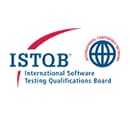PECB GDPR Practice Test Questions Answers
Exam Code: GDPR
(Updated 80 Q&As with Explanation)
Exam Name: PECB Certified Data Protection Officer
Last Update: 24-Jan-2026
Demo:
Download Demo
Questions Include:
GDPR Overview
Other PECB Exams
- ISO-31000-Lead-Risk-Manager Exams
- NIS-2-Directive-Lead-Implementer Exams
- ISO-IEC-27035-Lead-Incident-Manager Exams
- ISO-14001-Lead-Auditor Exams
- ISO-IEC-42001-Lead-Auditor Exams
- ISO-45001-Lead-Auditor Exams
- ISO-22301-Lead-Implementer Exams
- ISO-IEC-20000-Foundation Exams
- ISO-IEC-27005-Risk-Manager Exams
- Lead-Cybersecurity-Manager Exams
- ISO-9001-Lead-Auditor Exams
- ISO-IEC-27001-Lead-Auditor Exams
Reliable Solution To Pass GDPR Privacy And Data Protection Certification Test
Our easy to learn GDPR PECB Certified Data Protection Officer questions and answers will prove the best help for every candidate of PECB GDPR exam and will award a 100% guaranteed success!
Why GDPR Candidates Put Solution2Pass First?
Solution2Pass is ranked amongst the top GDPR study material providers for almost all popular Privacy And Data Protection certification tests. Our prime concern is our clients’ satisfaction and our growing clientele is the best evidence on our commitment. You never feel frustrated preparing with Solution2Pass’s PECB Certified Data Protection Officer guide and GDPR dumps. Choose what best fits with needs. We assure you of an exceptional GDPR PECB Certified Data Protection Officer study experience that you ever desired.
A Guaranteed PECB GDPR Practice Test Exam PDF
Keeping in view the time constraints of the IT professionals, our experts have devised a set of immensely useful PECB GDPR braindumps that are packed with the vitally important information. These PECB GDPR dumps are formatted in easy GDPR questions and answers in simple English so that all candidates are equally benefited with them. They won’t take much time to grasp all the PECB GDPR questions and you will learn all the important portions of the GDPR PECB Certified Data Protection Officer syllabus.
Most Reliable PECB GDPR Passing Test Questions Answers
A free content may be an attraction for most of you but usually such offers are just to attract people to clicking pages instead of getting something worthwhile. You need not surfing for online courses free or otherwise to equip yourself to pass GDPR exam and waste your time and money. We offer you the most reliable PECB GDPR content in an affordable price with 100% PECB GDPR passing guarantee. You can take back your money if our product does not help you in gaining an outstanding GDPR PECB Certified Data Protection Officer exam success. Moreover, the registered clients can enjoy special discount code for buying our products.
PECB GDPR Privacy And Data Protection Practice Exam Questions and Answers
For getting a command on the real PECB GDPR exam format, you can try our GDPR exam testing engine and solve as many GDPR practice questions and answers as you can. These PECB GDPR practice exams will enhance your examination ability and will impart you confidence to answer all queries in the PECB GDPR PECB Certified Data Protection Officer actual test. They are also helpful in revising your learning and consolidate it as well. Our PECB Certified Data Protection Officer tests are more useful than the VCE files offered by various vendors. The reason is that most of such files are difficult to understand by the non-native candidates. Secondly, they are far more expensive than the content offered by us. Read the reviews of our worthy clients and know how wonderful our PECB Certified Data Protection Officer dumps, GDPR study guide and GDPR PECB Certified Data Protection Officer practice exams proved helpful for them in passing GDPR exam.














